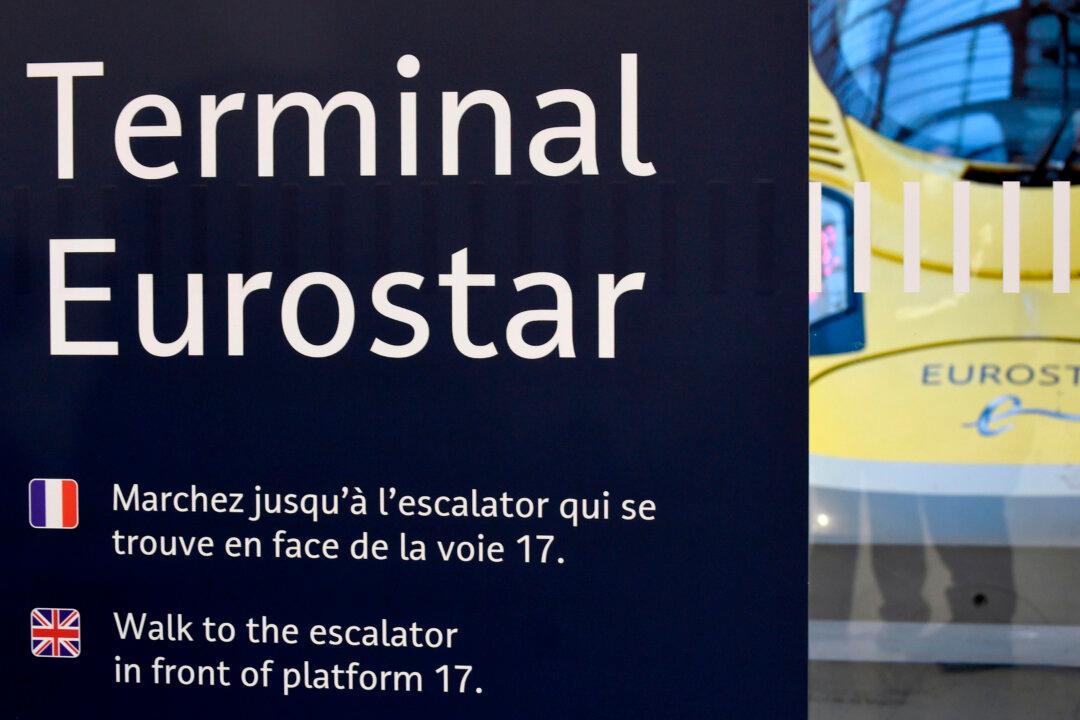France is banning travel “without compelling reasons” to and from the UK, effective Dec. 18, over concern regarding the Omicron variant of the CCP (Chinese Communist Party) virus.
Tourism and business trips won’t be considered as compelling reasons for travel, but French citizens and residents, as well as their children and spouses or cohabiting partners, will still be able to travel to France.





